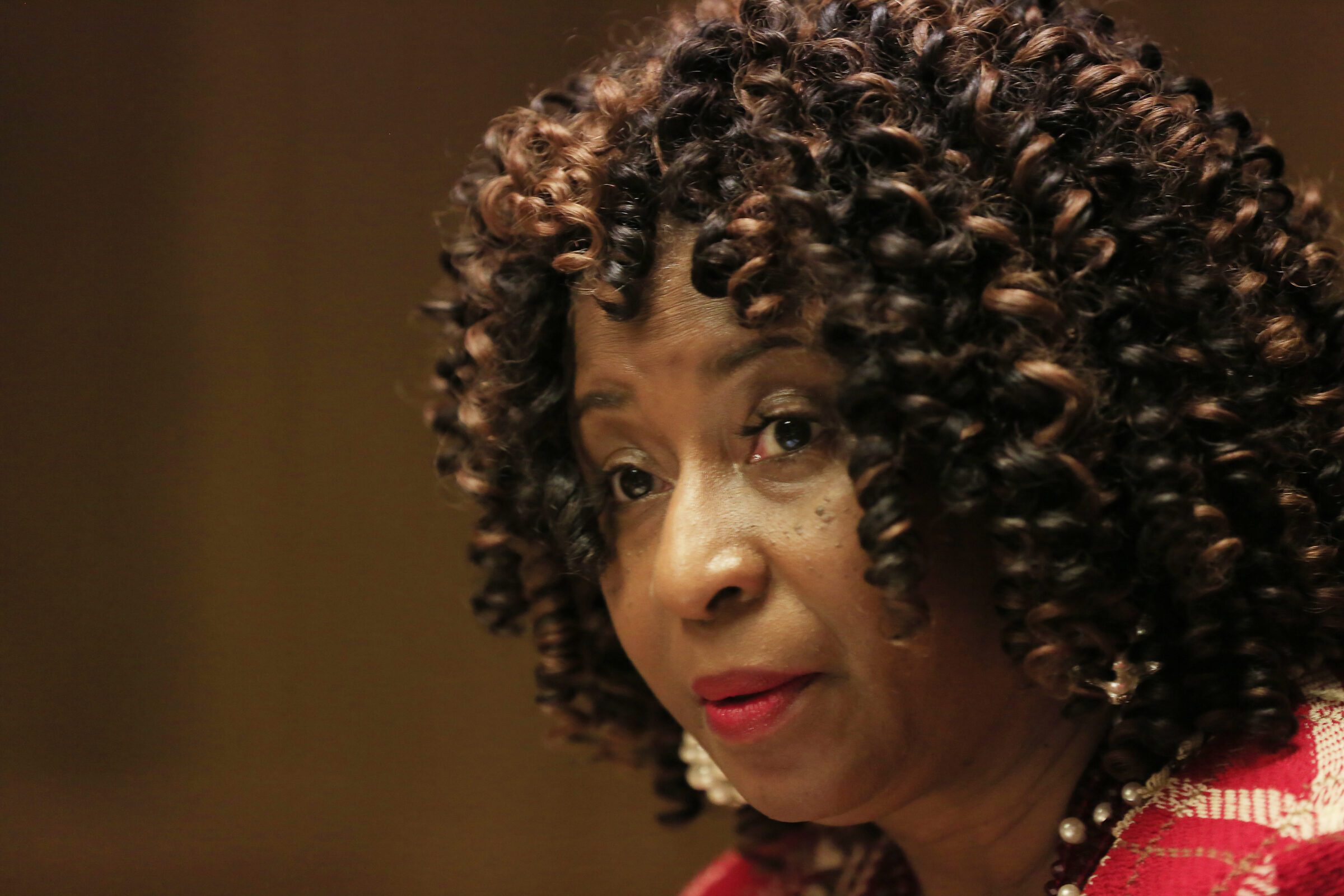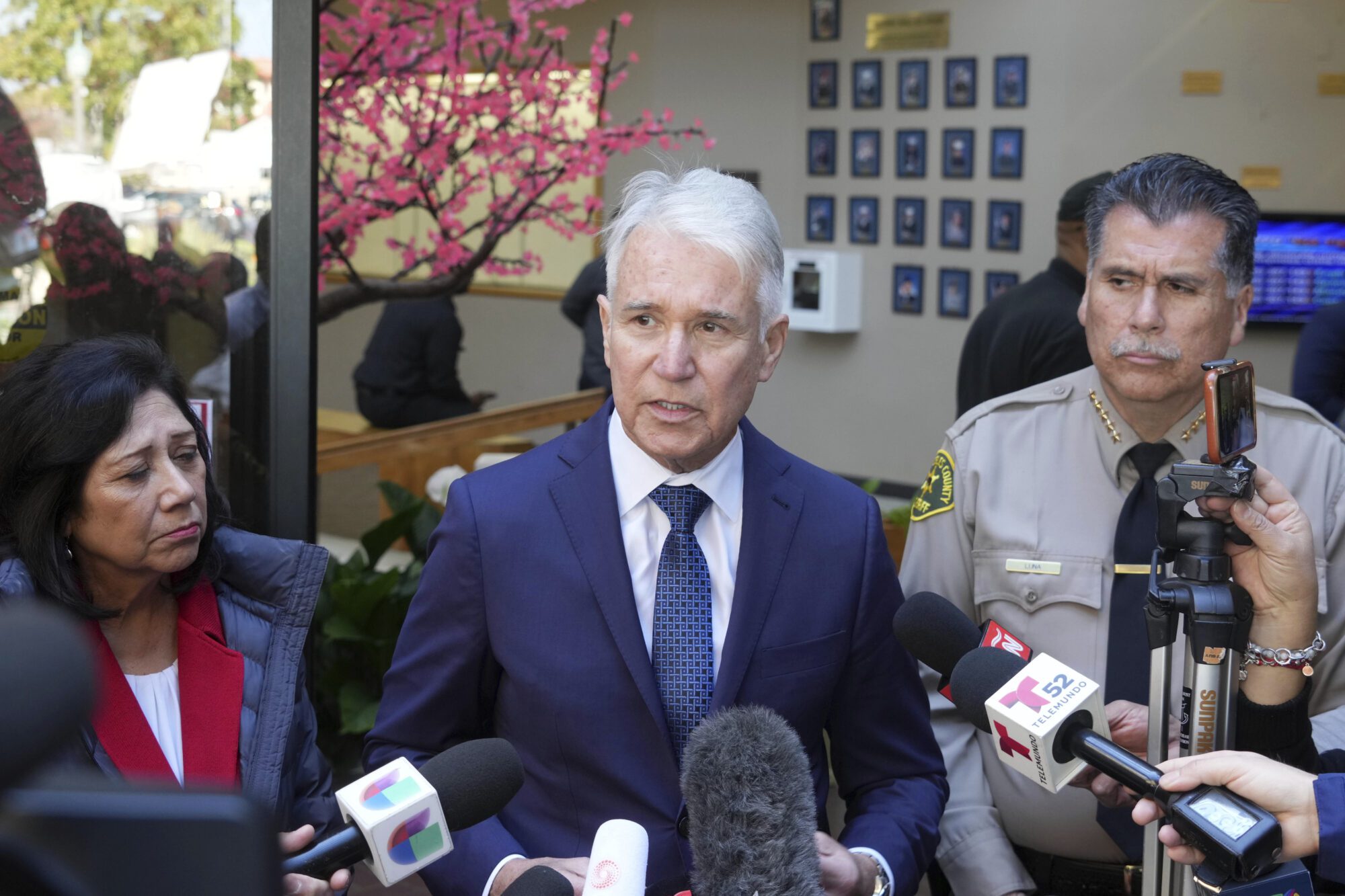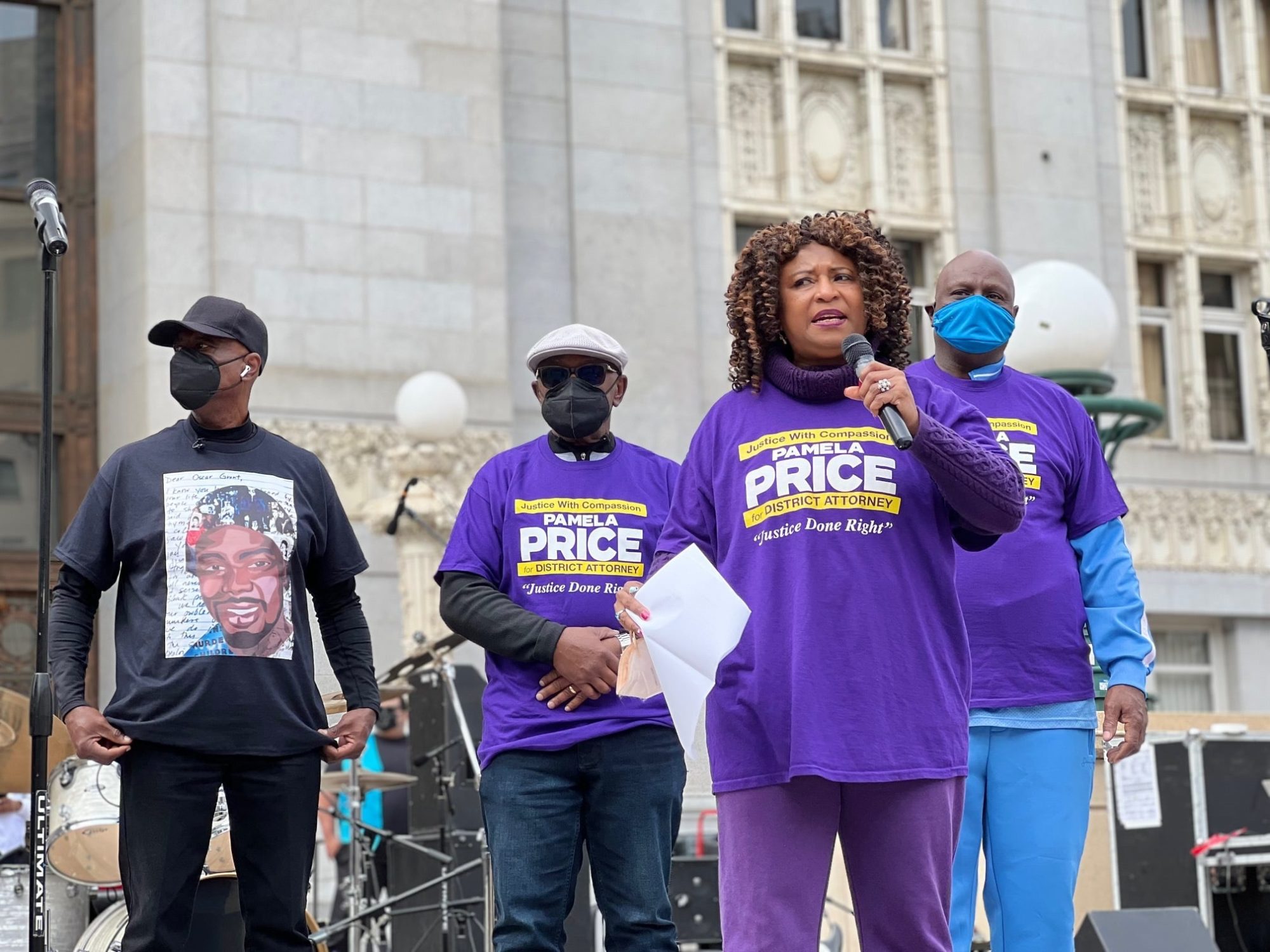Voters Dismiss Two of California’s Leading Progressive Prosecutors
Los Angeles’ George Gascón and Oakland’s Pamela Price sought to use their offices to redress the harms and disparities of the criminal legal system. Both suffered large defeats this week.
| November 8, 2024
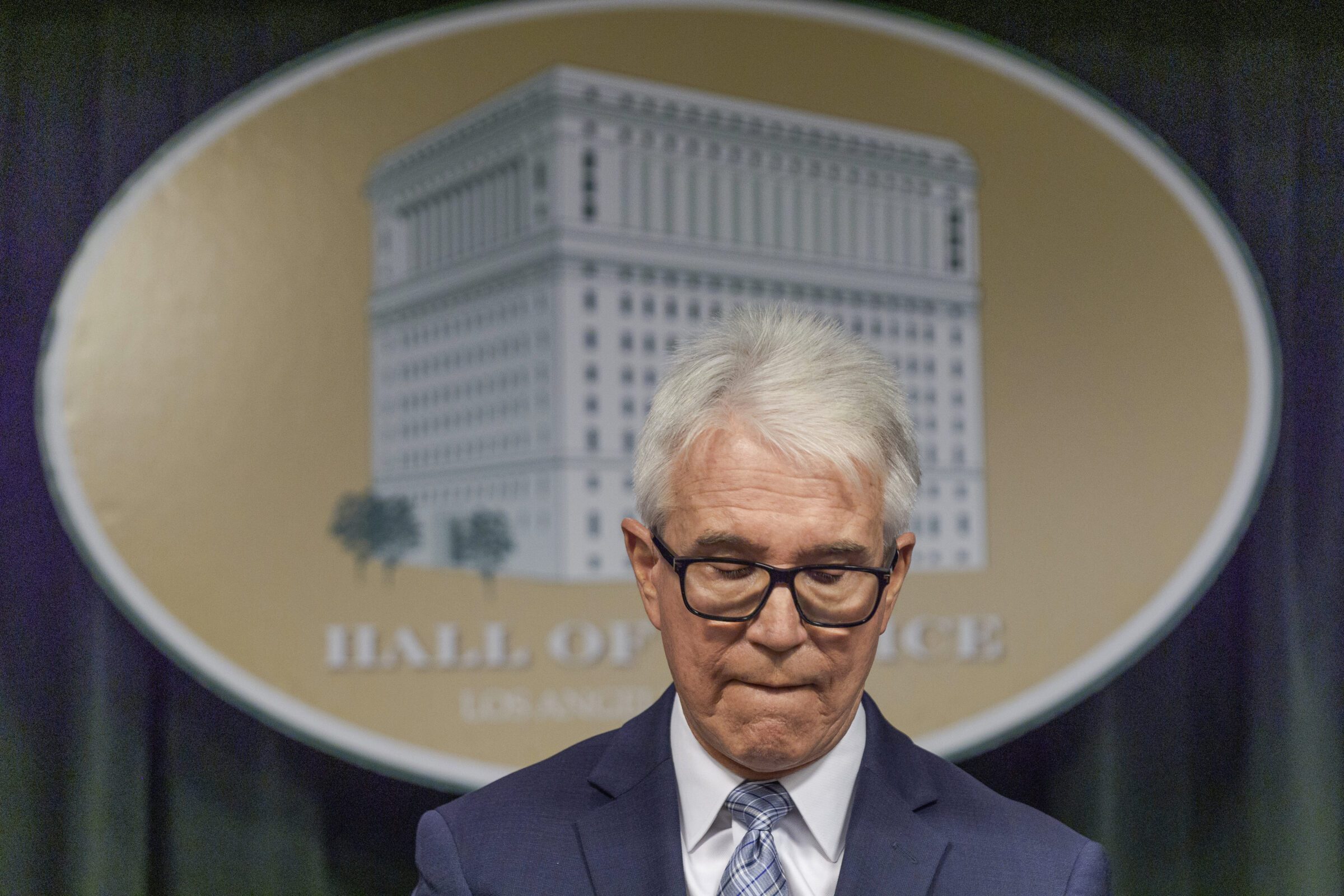
Voters in Southern California and the East Bay have ousted two of the boldest reform DAs to hold office since the “progressive prosecutor” movement began. In Los Angeles County, George Gascón lost his reelection bid to Nathan Hochman, a former federal prosecutor and 2020 Republican candidate for state attorney general who has vowed to undo all of Gascón’s changes to the role. In Alameda County, DA Pamela Price was recalled alongside Oakland’s mayor Sheng Thao after just two years in office. These defeats appear to be resounding: Initial results show that Hochman beat Gascón by a 23-point margin. Results have not been finalized in Alameda County, but as of publication support for Price’s recall was up by 30 points.
Gascón and Price’s backgrounds are starkly different—he’s a former beat cop who left his job as San Francisco DA to run in LA; she’s a longtime civil rights attorney—but both came into office vowing to use the power of the DA to redress the harms, abuses, and disparities of mass incarceration. Both issued ambitious policy proclamations that involved keeping young people out of the adult criminal system, ending the use of the death penalty, holding police accountable for wrongdoing, and tamping down on harsh sentencing. And both became the target of intense and sustained opposition campaigns from virtually the day they stepped into office. Reform DAs “are being watched so closely, not only by their constituents, but by people all around the country with big pulpits,” Mona Sahaf, the director of the Vera Institute’s Reshaping Prosecution Initiative, told me back in January.
In 2020 and 2022, Gascón and Price represented a new chapter in counties where decades of top prosecutors embracing harsh sentencing had led to extensive racial disparities without making residents feel particularly safe. Gascón’s election was fueled by the George Floyd uprising that summer; Black Lives Matter’s LA chapter had protested every week outside his predecessor Jackie Lacey’s office. Describing the sentiment that led to Price’s win two years later, Ella Baker Center political director Jose Bernal said, “We want community members to thrive. We want to feel safe walking on the street. And in order to do that, we need to address the root causes of these social problems.”
Voters embraced the vision that both candidates laid out—a vision of racial justice, restorative justice, second chances, and accountability for police who abuse their power. But this time around, many of those same residents have rejected the two prosecutors.
“We all have a lot to learn here around how to get past the policy-politics divide,” Sahaf told me when we spoke again on Wednesday. “There’s no evidence that the reforms that Gascón and Pam Price and other reform candidates promote don’t work,” she said, but “what’s very real is people feeling that they are not safe, people feeling that they’re not being heard, people not understanding how these solutions are going to actually make their lives better. That’s where we have a lot of work to do.”
The election results have left reformers asking where the progressive prosecutor movement goes from here. Sahaf cautioned against interpreting the losses as a referendum on the movement’s viability. “I do see wins outside of California for the same exact policies that Gascón and Price put forth,” she said. In Orlando, for instance, Democratic prosecutor Monique Worrell won her job back after Governor Ron DeSantis removed her and installed a Federalist Society member instead. In Austin, reform DA José Garza beat back tough-on-crime challengers in the March primaries and again on Tuesday to hold onto his seat.
“I think this is about a much larger bucket of frustration that people have with government that they feel is not providing for them,” Sahaf said. But, she added, “it is also that larger frustration that opens up this environment where justice reform is an easy target.”
The repudiation of Price and Gascón was part of a broader shift in California politics. This week, residents also voted down a ballot measure that would have outlawed forced work in prisons and passed another to increase penalties for certain drug and theft crimes, functionally repealing a landmark 2014 sentencing reform that helped reduce severe prison overcrowding.
This didn’t happen in a vacuum: Since 2020, right-wing politicians, corporations, and police associations have waged a coordinated backlash campaign that has successfully capitalized on people’s fear and anguish during a devastating pandemic. And Democratic leaders in the state and across the nation have responded by shrugging off the mantle of prison and police reform, ramping up the criminalization of homelessness, endorsing tougher penalties for retail theft, and even in some cases directly undermining local Democratic officials elected on a reform platform. In 2020, reform DAs were held up as a solution—perhaps an unrealistically quick fix for decades of mass incarceration. In 2024, they were left holding the bag.
“It was really left on the backs of the people, of grassroots organizers, to push for Gascón,” Black Lives Matter LA co-founder Melina Abdullah told me. “The Democratic Party should have been pushing for Gascón.”
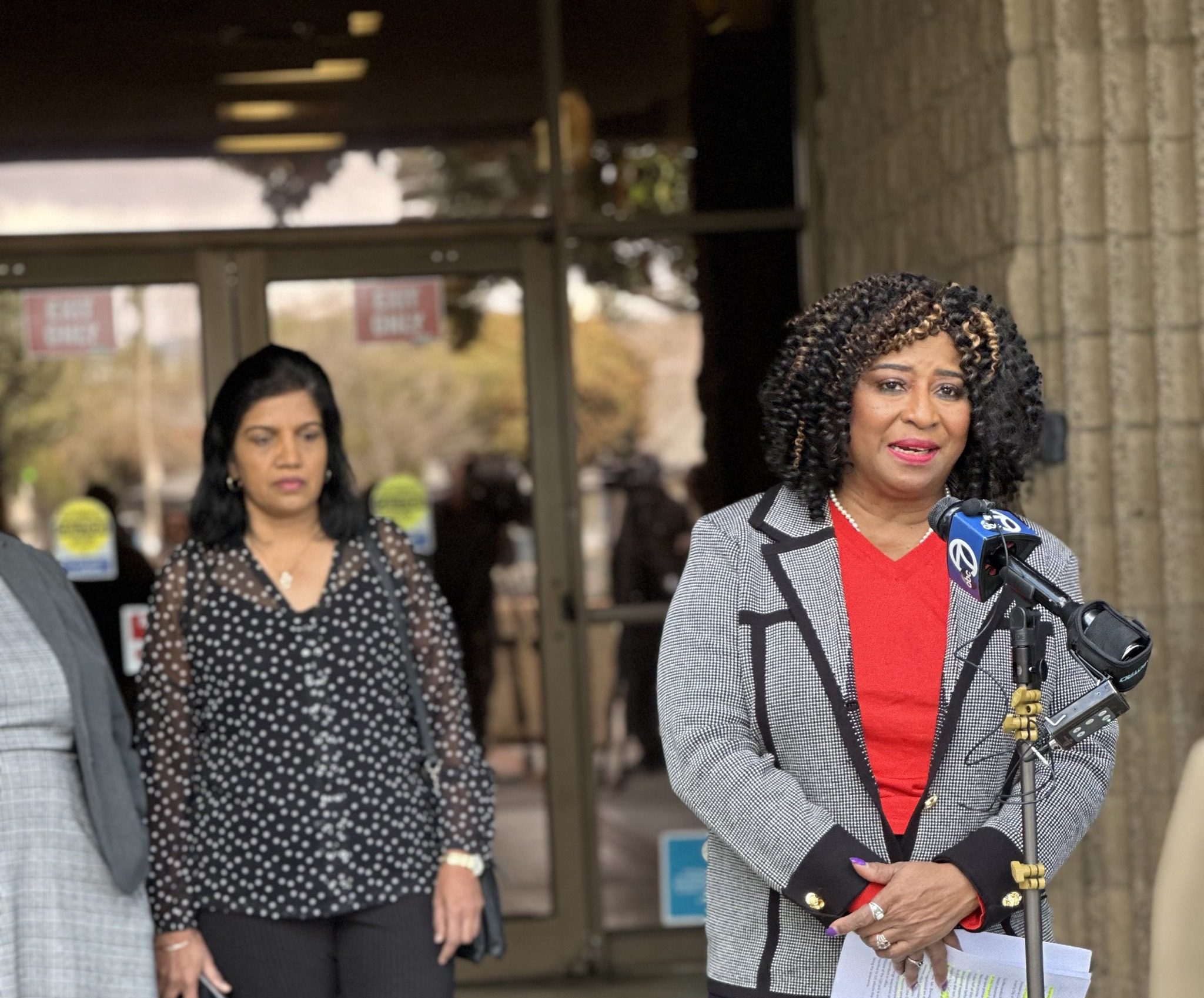
In the intervening years, the fountain of money that fueled progressive wins back in 2020 has slowed to a trickle: Democratic megadonor George Soros spent nearly $2.5 million on Gascón’s initial election, only to avoid the race entirely this time around. Meanwhile, both candidates’ campaign promises to prosecute abusive and violent cops spurred police groups into action: All 14 law enforcement associations in Alameda County endorsed the Price recall, and at least eight donated to support it. In LA, local and statewide sheriff, police, and prison guard associations gave over $2 million to support Hochman, Gascón’s challenger. Both DAs were opposed by the deputy prosecutors in their office, sparking embarrassing lawsuits and bolstering a narrative of internal turmoil.
And with the successful ouster of reform DA Chesa Boudin in San Francisco in 2022, recalls were ratified as a viable playbook for monied interests seeking to unseat democratically elected candidates whose policies they opposed as quickly as possible. Gascón, for his part, survived two recall attempts before his defeat at the polls. In Price’s case, a petition urging her recall circulated as soon as a month after she took office, and an official recall committee was organized within seven months. The campaign ultimately raised more than $3 million, receiving hefty donations and loans from the same donor who spent big to recall Boudin.
“When you’re doing recalls, you gotta have some money somewhere,” Brenda Grisham, the public face of the Price recall movement, told me. “Somebody’s got to pay for those signatures.”
Price and Gascón were widely seen as flawed leaders who made strategic missteps while in office. They both struggled to rise to the challenge of transforming calcified bureaucracies staffed with people who broadly opposed the sort of change they heralded. Gascón disappointed many by backing away from nearly all of his blanket policies to varying degrees, and by failing to more vigorously prosecute police officers responsible for a number of high-profile shootings that outraged Angelenos. Alex Trantham, secretary for the LA public defenders’ union that endorsed Gascón in 2020 but withheld its endorsement this year, told me that the DA was “definitely an improvement from under Jackie Lacey, but he still, as many elected officials can, changed his policies based on public perception of what was going on with certain cases.”
Price didn’t have much time to disillusion her supporters. “She had it tough going in…I don’t think she got a lot of support,” Bernal said. From the start, the DA contended with community anger over youth crime and demands for harsher punishment, which clashed with her platform for juvenile justice, which prioritized rehabilitation and keeping young people in the youth system rather than transferring them to adult criminal court.
But Bernal also noted that the high staff turnover that characterized the office under Price gave the appearance of dysfunction: “It’s not a good look, that many transitions while in office.” He added that Price would have benefited from doing more and better community outreach. Both DAs failed to effectively communicate their accomplishments to the broader public, were prickly and at times hostile to media, and could come off as tone-deaf when dealing with crime victims’ families.
“You gotta have allies—and she doesn’t feel she needs to,” Grisham said of Price when we spoke in May.
The Alameda County Board of Supervisors is now responsible for selecting an interim DA, a task with high stakes considering the appointee will be in office for at least two more years, as much time as Price has spent in office; voters won’t select a DA to serve out the remainder of her six-year term until 2026. (Meanwhile, the president of the Oakland City Council will serve as interim mayor until a special election is held to replace Thao.) Bernal noted that the passage of Proposition 36, which will reduce funding for mental health services in Alameda County, only raises the stakes for the DA appointment. He urged that the board “really look at someone who’s going to continue to really prioritize mental health for our community members, expand mental health courts and pretrial diversion.”
Grisham, who pushed for the recall, said she hopes the next DA will eschew blanket policies for young people who commit crimes and be more open to working with victims’ families.
In LA, Hochman has vowed to overturn all of Gascón’s blanket policies, including what has been the least controversial and only blanket policy Gascón has stuck to during his first term: his prohibition on seeking the death penalty. Trantham with the public defenders’ union also worries that a return to widespread use of sentencing enhancements and prior “strikes,” both of which Hochman has vowed to revive, will strain the public defender’s office and coerce defendants into unfair plea deals. “You’re forcing people to plead because they’re so afraid of the total maximum time they could be facing,” she said.
While Gascón walked back his blanket prohibition on charging young people as adults, the office currently only seeks transfers to the adult system in cases of murder. The public defenders’ union believes that Hochman may begin seeking adult prosecutions of young people for a wider variety of crimes. The DA-elect has pledged to seek a “hard middle” that doubles down on long punishments for repeat offenders but preserves second chances for first-timers, but both Abdullah and Trantham say they’re skeptical.
“No such thing as a hard middle,” Abdullah told me. “What Hochman threatens for Los Angeles County is a new era of lock ‘em up—and devastating and decimating Black communities especially.”
After we spoke, Tranthem sent me a follow-up message: “We hope that we are wrong about Hochman and that he proves to us that he sees our clients as human beings who deserve a chance at rehabilitation.”
“The loss of Gascón and that seat is devastating,” Abdullah said. She still thinks it’s worth focusing on DA offices as an important lever of power, but noted that Gascón’s election, and the policy vision he outlined, was always a response to community demands. “An electoral strategy is an important strategy, but it’s also only one strategy,” she said. “November 5th was for voting…I think the answer for November 6th is to organize. To keep the movement going, to redouble our efforts.”


